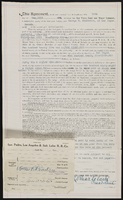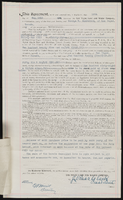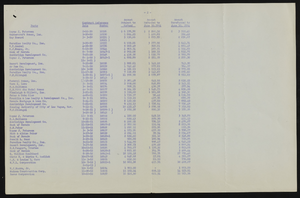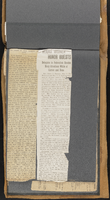Search the Special Collections and Archives Portal
Search Results
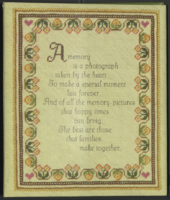
Mabel Hoggard: scrapbook
Date
Archival Collection
Description
From the Mabel Hoggard Papers (MS-00565) -- Personal papers file. This scrapbook contains event programs; newspaper clippings about Mabel Hoggard; photographs of Mabel Hoggard, family, and friends; and letters to Mabel Hoggard. Items include: Mabel Hoggard Elementary School 1981 graduation program; biographical sketch of Mabel Hoggard; "Happenings: successful steps toward school integration: report #1, what's happening in Clark County School?" February 10, 1969; and Westside Council tenth meeting summary, May 27, 1969.
Mixed Content

Laurents Bañuelos-Benitez oral history interview: transcript
Date
Archival Collection
Description
Oral history interview with Laurents Bañuelos-Benitez conducted by Rodrigo Vazquez and Barbara Tabach on June 16, 2021 for the Latinx Voices of Southern Nevada Oral History Project. Laurents is a Las Vegas native, graduate of Clark High School, and son of Mexican and Salvadoran immigrants. He is currently an English teacher at Rancho High School and was a former student worker on the Latinx Voices project.
Text
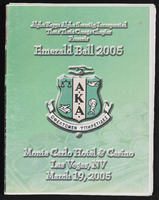
Emerald Ball (Monte Carlo Hotel)
Date
Archival Collection
Description
From the Alpha Kappa Alpha Sorority, Incorporated, Theta Theta Omega Chapter Records (MS-01014) -- Ivy Leaf magazines and event souvenir programs file.
Text

Transcript of interview with William Morgan by David G. Schwartz, October 21, 2016
Date
Archival Collection
Description
Text
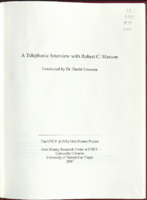
Transcript of interview with Robert C. Maxson by Dr. David Emerson, May 15, 2007
Date
Archival Collection
Description
Text

